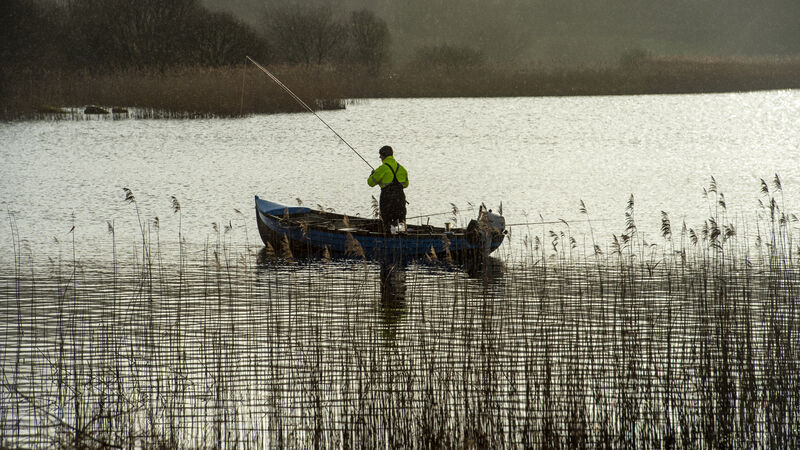Poor water quality at scenic Cork lake to be tackled

Fishing in the winter sunshine on Lough Allua just outside Béal Átha an Ghaorthaidh, Cork. It has been designated as a priority area for water quality improvement works under the Local Authority Water Programme. Picture: Dan Linehan
Solutions are to be developed after a scenic Cork lake, popular for fishing and water sports, was identified as having poor water quality.
Lough Allua, which borders Béal Átha ’n Ghaorthaidh and Inchigeelagh, was assigned ‘poor’ status by the Environmental Protection Agency, and along with another nearby stretch of the River Lee downstream of Gougane Barra, is deemed at risk of not meeting EU Water Framework Directive objectives.













